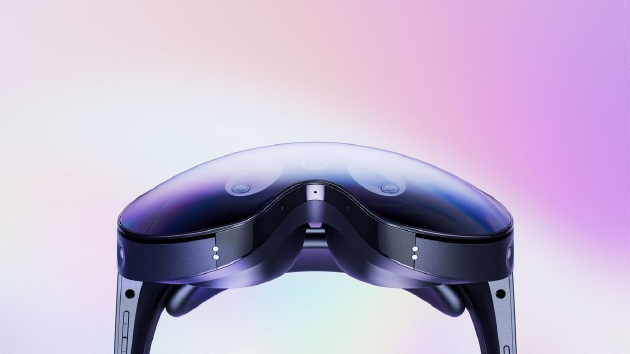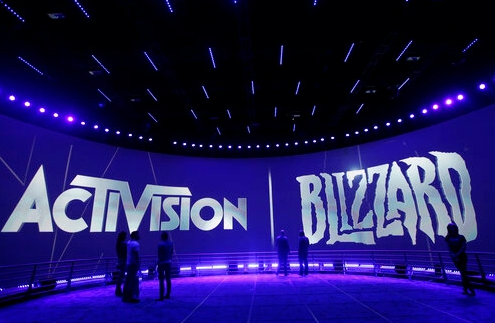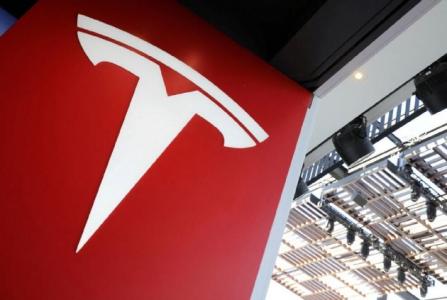your current location is:Home > Finance > depthHomedepth
Unity splits its Chinese business: digging deep into the game engine market

At a time when the game industry is trending towards boutique development, game products are more immersive and refined; at the same time, cross-platform production has also become a major trend in the game industry. Behind this, the game engine as the underlying technical architecture is indispensable.
At the beginning of August, Unity, the game engine developer who had produced hits such as "Honor of Kings", "Genshin Impact" and "League of Legends Mobile Games", announced the split of its Chinese business to further seek expansion in China. Unity is the most widely used game engine at the moment. It does not participate in game production, but only provides technical solutions for developers.
However, the "ambition" of many game engine vendors, including Unity, does not stop at games. Unity China has absorbed Alibaba, China Mobile and other companies as partners, saying that they will join hands with Unity to enter new industries; the domestic mobile game engine Cocos also said that it has a layout in the fields of virtual human, car machine, digital twin, AR/VR and other fields .
Spin off China business
On August 9, Unity announced the spin-off of its Chinese business and established a regional joint venture, Unity China, to inject its creation solutions business and game service business in China into the company. The post-investment valuation of Unity China is US$1 billion, and the majority stake and control are still in the hands of Unity, which is supervised by a board of directors composed of Unity executives and representatives of major investors.
But Unity China has introduced a number of well-known local Chinese companies as partners, including Alibaba, China Mobile, Gigabit, Mihayou, OPPO, Jiadu Technology, and Douyin Group.
Unity China told the reporter of "China Business News" that its capital covers all fields from software to hardware, and they are leaders in their respective industries. They were important customers and partners of Unity in China in the past and maintained good cooperation with Unity. Their addition can bring opportunities for Unity China to develop rapidly, and also create opportunities to build a healthy upstream and downstream industrial ecology together.
Han Xiaochen, chief analyst of Zhongtai Securities Internet Media, pointed out that Unity China is considering introducing domestic partners for better promotion and technical iteration. These investors include telecom operators, game content parties, traffic parties, and hardware parties, which constitute the industry chain upstream and downstream.
Previously, games such as "Honor of Kings", "Genshin Impact" and "League of Legends Mobile Games" developed through the Unity game engine became popular all over the world. In terms of game development market share, Unity undoubtedly occupies the "first brother" position. On the PC side, a research report by Zhongtai Securities in January this year showed that among all games on Steam, the engine developed by Unity accounted for 62.02%, and the Unreal engine developed by Epic Games accounted for 15.67%, ranking second; on the mobile side , SensorTower's November 2021 global mobile game revenue TOP10 list shows that games developed using the Unity engine account for 60%, and Unity's official data shows that the mobile game development engine Unity will account for 61% in 2020.
However, Unity does not only earn revenue by serving game development. Its business can be divided into two parts - creation solutions and operation solutions. The revenue mainly comes from the seat subscription revenue of the main engine of game development and the advertising platform responsible for matching the bidding. income.
Unity’s second-quarter financial report shows that the company is still in the red, with a non-GAAP operating loss of $44.125 million for the current period.
The company's second-quarter authoring solutions revenue rose 66% year-over-year, reflecting an unchanged growth trend in creating with its software. The Unity 2022 Game Industry Trends Report states that the number of creators using the Unity platform to make games is increasing, with a 93% increase in publisher-built games and a 31% increase in the number of creators on the Unity platform in 2021.
However, due to the subsidence of the housing economy dividend after the new crown pneumonia epidemic, the game industry as a whole has shrunk, and Unity's operation solutions business, which accounts for a larger proportion of advertising revenue, fell by 13% in the second quarter.
In July, Unity announced that it would acquire the mobile advertising platform ironSource at a price of US$4.4 billion to further improve its game industry chain from development and production, paid user acquisition to advertising monetization.
Unity's more capital operations take place in the underlying technology field. Since 2020, Unity has acquired multi-person network framework MLAPI, computer vision and deep learning company RestAR, special effects company Weta Digital, and virtual character software company Ziva Dynamics. Among them, Weta Digital is a technology company that is deeply involved in film special effects. It has participated in the creation of works such as "Avatar", "Black Widow" and "Game of Thrones".
Unity has repeatedly signaled that its “ambition” is not limited to the gaming industry. Its official website shows that solutions in "automotive, transportation and manufacturing", "film and animation", and "architecture, engineering and construction" are placed on the same level as "games". It is reported that Unity has established early-stage cooperation with Vancouver Airport, Haier Group and other companies to build a digital twin platform for scheduling and management; in the industrial fields such as construction and automobiles, Unity has also taken actions to obtain pilot projects or release related solutions.
Market "Two Dominance"
Game engine refers to the core components of some pre-written editable computer game systems or some interactive real-time graphics applications. With game engines, game developers can make games easily and quickly without starting from scratch.
The real game engine was born in the PC game era in the 1990s. The American game manufacturer ID Software used Wolfenstein 3D and Doom engine to develop "Wolfenstein" and "Doom", which opened the era of game engines blooming.
In the era of PC games, many game manufacturers developed their own engines and used them to develop works. In China, Perfect World, Changyou, Xishanju, NetEase, Tencent, etc. all have self-developed game engines, and domestic game works such as "Fantasy Westward Journey" and "Dragon Babu" have been born.
Liao Xuhua, a senior analyst in the Analysys Mutual Entertainment industry, told reporters that each big factory still has its own engine and develops products on it. As commercial software, Unity and Unreal need fully available R&D technology and a relatively broad market.” Just like many companies have internal IM tools, but they don't necessarily make a 'DingTalk' for sale, the self-developed engine considers team experience, its own unique needs and costs, and commercial software is another matter."
Han Xiaochen explained that the reason why most engines have not gone open source is that the economic benefits are too poor: first, the game is too profitable, and manufacturers do not need to rely on the engine to make money; second, the engine is too non-standard, there is no scale effect, and the cost is high, and the technology and hardware iterations are fast. . "There are also many big companies that use their own closed-source engines to develop games."
Soochow Securities Research Report pointed out that the game engine industry is currently dominated by Unity and Unreal.
The Unreal engine, owned by American game maker Epic Games, was first launched in 1998. In 2020, the fifth-generation Unreal engine was launched, which has become the most widely used game engine outside of Unity. Well-known games developed through Unreal include Fortnite, PUBG, and more.
Unlike Unreal, Unity only provides a platform for developers and does not participate in game production. The fortune of Unity is closely related to Apple, which was born in 2005 for Apple's Mac OS system. In 2007, the first-generation iPhone was released, and Unity supported iOS a year later. In 2010, Unity supported the Android system and became the first game engine to support the development of both iOS and Android mobile platforms.
In terms of absolute numbers, Unity currently occupies a larger market share than Unreal, but both have their own strengths in the segment. The research report of Zhongtai Securities in January this year pointed out that the Unity engine has a low threshold for getting started, complete functions, and rich plug-ins.
In addition to Unity and Unreal, some commercial engines are also emerging, looking for a living space, such as the Cocos engine of Xiamen Yaji Software Co., Ltd. In April of this year, Cocos announced the completion of a $50 million Series B financing. The company said that it will use capital to help continue to improve the core technology of the engine, and promote the integration of the engine with scenarios such as games, automobiles, education, XR, home design, and architectural engineering design.
Cocos was founded in 2010 and originated in the field of mobile games. At the beginning of 2021, Cocos Creator 3.0 will merge the two sets of 2D and 3D products, and start the integrated construction of the engine. According to the official website of Cocos, the games it develops cover all categories of the market, and its customers include Tencent, NetEase, Nintendo, Ubisoft, etc.
Cocos told reporters that in its recently launched Cocos Creator 3.6 version, the operating efficiency, user experience and rendering effects of complex scenes have been comprehensively enhanced. At present, some leading companies in the industry have used Cocos Creator to develop medium-to-heavy games.
Unity, as a giant in the game engine industry, split its Chinese business, showing its determination to further expand in the Chinese market. The reporter asked Cocos for their views on Unity's move. The company said that the domestic developer market is very large, and Unity's splitting of its Chinese business means that it will pay more attention to the needs of domestic developers in the next stage, which will help the development of the entire 3D content creation industry, and it is also a great opportunity for Cocos. mutually reinforcing process.
The person also said that each engine is good at different fields, and there will definitely be pressure, but more pressure comes from the market environment, developer needs and its own technology iteration speed.
Cross-border to other fields
As a multimedia carrier, games will use technologies such as sound, image, and video. As the underlying technical architecture, game engines also have certain universality in other industries. Game engine companies use this to express their willingness to expand to get rid of their dependence on games. During this process, the concept of "metaverse" was repeatedly mentioned. As mentioned above, Unity, as the vanguard of the commercial game engine industry, has recently expressed its determination to enter other digital scenarios.
The Cocos engine also stated that it has grown into a universal tool across multiple fields, and is ready to embrace the next generation of Internet digital content world. A person from the company told reporters that outside the game industry, Cocos has a corresponding layout in the fields of virtual people, car machines, digital twins, AR/VR, etc. The commercial projects that have been implemented include: The K Meta-entertainment solutions including songs, language chats, live broadcasts, and interactive games, the one-stop meta-universe solution development solution "Xirong lite" launched with Baidu Xirong in July; in terms of tools, Cocos released the first half of this year. Cocos HMI, the smart cockpit solution, will also release the AR/VR content editor Cocos CreatorXR in the second half of the year, and the code-free visualization virtual character editor.
Although there are some commonalities in theory, can technical frameworks built for games be flexibly applied to other fields?
Unity Chinese people told reporters that the real-time 3D engine originated in the game industry, and it has developed and iterated in the continuous progress of the game industry, becoming more efficient and easy to use. The current Internet experience is experiencing the expansion from 2D to 3D, which makes Unity's interactive visualization technology have a wider application space, creates virtual mapping for the real world, and establishes a generalized business social and social network in the virtual world. Entertainment, and even the nascent industrial metaverse and enterprise/commercial metaverse can be built using Unity.
Unity China said that so far it has practical application cases in areas other than games including digital twins, industrial manufacturing, smart cities, the automotive industry, e-commerce, and cultural tourism. "At the same time, we have seen huge market demand from other fields in the Chinese market, which will also be a key area for Unity China's further investment. We hope to drive the development of the entire industry by continuously expanding the application scenarios of the real-time 3D engine and form a A benign development path," said a company official.
Cocos people said that compared with other 3D content industries, the game industry has relatively high requirements for the complexity of application scenarios, the immediacy of interaction requirements, and the authenticity of picture rendering. The technologies used in game development, including rendering technology, physical State simulation technology, AR/VR technology, and virtual human technology can all be reused in other industries, which is also a common advantage of 3D engines.
Liao Xuhua told reporters that game engines can be used in other fields, and there are actually many projects that have been implemented, but there are still certain differences between other professional software and game engines, and the wide application of game engines in other fields still requires a lot of work to adapt to job requirements. .
Taking film and television production as an example, he pointed out that game engines need to consider real-time rendering and client capabilities, so the scene precision is much worse than that of CG software such as Houdini, while CG software does not require real-time rendering and is made in advance. Or the game project uses Houdini and Unreal at the same time, the two are complementary. Using the game engine alone is unlikely to support the project needs.”
Han Xiaochen said that the reason why the tools are not limited to the game field is because of the commercial value, because the amount of money realized through games is too small. And she believes that the process of developing game engines to other fields will not be smooth, because each field has its own tools that have occupied a certain share, and there is a cost to switch.
Previous:It will take 5-10 years for humanoid robots to land in mass production?
Next:Apple's exposure to serious security flaws is equivalent to giving hackers a master key?
related articles
Article Comments (0)
- This article has not received comments yet, hurry up and grab the first frame~











